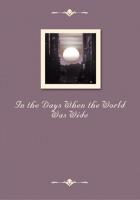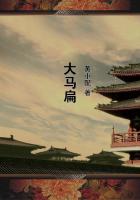The principle is, that either at the beginning, or ultimately, such questions shall or may be decided by the national tribunals. If in any suit properly cognizable in a State court the decision should turn on a clause in the Constitution, or on a law of the United States, or on the act of a national offense, or on the validity of a national act, an appeal lies to the Supreme Court of the United States and to its officers. The object has been to give to the national tribunals of the nation full cognizance of its own laws, treaties, and congressional acts.
The judges of all the national tribunals, of whatever grade or rank, hold their offices for life, and are removable only on impeachment.
They are not even removable on an address of Congress; thus holding on a firmer tenure even than our own judges, who may, I believe, be moved on an address by Parliament. The judges in America are not entitled to any pension or retiring allowances; and as there is not, as regards the judges of the national courts, any proviso that they shall cease to sit after a certain age, they are in fact immovable whatever may be their infirmities. Their position in this respect is not good, seeing that their salaries will hardly admit of their making adequate provision for the evening of life. The salary of the Chief Justice of the United States is only 1300l. per annum.
All judges of the national courts, of whatever rank, are appointed by the President, but their appointments must be confirmed by the Senate. This proviso, however, gives to the Senate practically but little power, and is rarely used in opposition to the will of the President. If the President name one candidate, who on political grounds is distasteful to a majority of the Senate, it is not probable that a second nomination made by him will be more satisfactory. This seems now to be understood, and the nomination of the cabinet ministers and of the judges, as made by the President, are seldom set aside or interfered with by the Senate, unless on grounds of purely personal objection.
The position of the national judges as to their appointments and mode of tenure is very different from that of the State judges, to whom in a few lines I shall more specially allude. This should, Ithink, be specially noticed by Englishmen when criticising the doings of the American courts. I have observed statements made to the effect that decisions given by American judges as to international or maritime affairs affecting English interests could not be trusted, because the judges so giving them would have been elected by popular vote, and would be dependent on the popular voice for reappointment. This is not so. Judges are appointed by popular vote in very many of the States. But all matters affecting shipping and all questions touching foreigners are tried in the national courts before judges who have been appointed for life. I should not myself have had any fear with reference to the ultimate decision in the affair of Slidell and Mason had the "Trent" been carried into New York. I would, however, by no means say so much had the cause been one for trial before the tribunals of the State of New York.
I have been told that we in England have occasionally fallen into the error of attributing to the Supreme Court at Washington a quasi political power which it does not possess. This court can give no opinion to any department of the government, nor can it decide upon or influence any subject that has not come before it as a regularly litigated case in law. Though especially founded by the Constitution, it has no peculiar power under the Constitution, and stands in no peculiar relation either to that or to acts of Congress. It has no other power to decide on the constitutional legality of an act of Congress or an act of a State legislature, or of a public officer, than every court, State and National, high and low, possesses and is bound to exercise. It is simply the national court of last appeal.
In the different States such tribunals have been established as each State by its constitution and legislation has seen fit to adopt.














